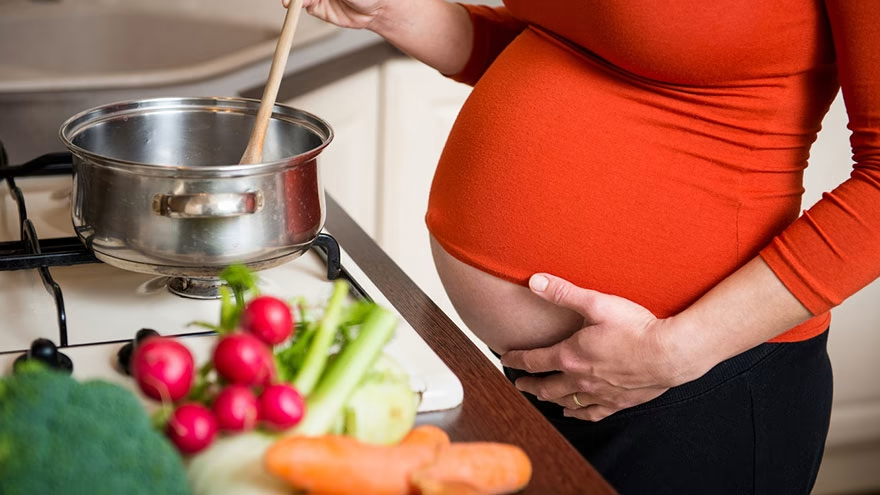As a mom, you’ve got to do your own research and figure out what foods you should be adding to your diet. But as an informed mom, you know that some special foods -
- superfoods -
- can remove some of the burden of having to plan every tiny detail of your meal plan.

For Iron
When pregnant, your body begins producing more blood, up to 150 percent of your pre-pregnancy value. Blood comprises red blood cells, which themselves consist of hemoglobin, the essential protein that delivers oxygen throughout your body.But without an adequate amount of iron, your body cannot produce the needed amount of hemoglobin, which, again, is nearly double that of your pre-pregnancy needs. So for the pregnant women, it is iron-heavy superfoods to the rescue.
Pregnant women who want to beat out iron deficiency should opt for liver and seeds -- especially squash and pumpkin seeds. Just 150 grams of either of these superfoods can get you to approximately 100 percent of your daily requirements for iron during pregnancy.
For Folate
Folate, aka folic acid, and vitamin B9, is essential in pregnancy not just for the mother, but for the developing fetus as well. A lack of folate in a pregnant woman’s diet can lead to birth defects. Thus, to be on the safe side, pregnant women should eat more folate than usual.But if you’ve been eating liver for that extra iron, you’re already doing well, as 100 grams of liver contains enough daily folate for a pregnant woman. But if you’re not a fan of liver, consider snacking on some edamame, or Japanese cooked soybeans. Two hundred grams of edamame daily is more than enough for a pregnant woman.
For Calcium
Calcium is an essential building block for the bones and muscles of your developing baby. Your body already contains a large amount of calcium in its bones, assuring that your baby will always have enough calcium from which to draw. But the problem lies here: If you aren’t continually ingesting calcium, your baby will be getting her calcium straight from you, leaving you with a calcium deficiency.To win this calcium back-and-forth, add progressively verdant greens to your eating routine - the darker, the better.
One cup of kale, for instance, contains roughly 15 percent of your day by day calcium needs. Supplement your vegetable intake with some dairy intake. Most dairy products are high in calcium. Swiss and Parmesan cheeses, for example, come with approximately one-third of your daily needed calcium in a single ounce.
For Zinc
Most people taking zinc supplements tend to be men due to zinc’s relationship with testosterone production. But pregnant women are just as much in need of zinc as any man.Without an adequate amount of zinc in your diet, you leave your baby exposed to birth problems: He could be in danger of low birth weight and a heightened risk of miscarriage. So get your daily zinc requirements through some of the zinc superfoods.
Buy toasted wheat germ in bags and sprinkle it over your rice or vegetables. One hundred grams of toasted wheat germ contains more than your daily required amount of zinc. And if you’re a meat eater, beef works well in supplying your body with zinc.
A pound of roast beef, for example, will also top off your daily zinc requirement. Just remember to cook it well, as you have to be more careful of bacteria when pregnant.
Save for later
Found this helpful?
Pin this article to your Pinterest board and come back to it whenever you need a reminder.
Save to Pinterest


